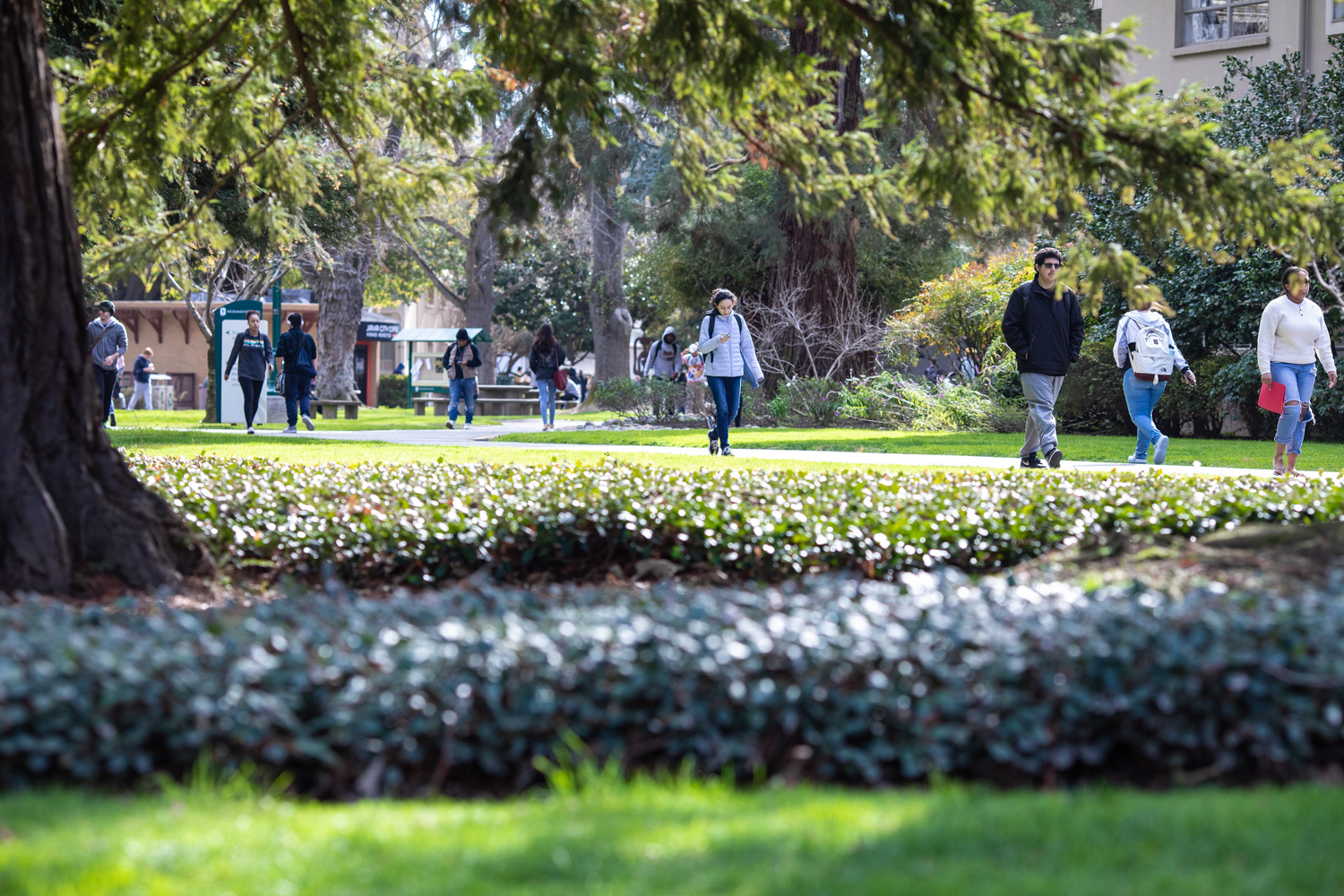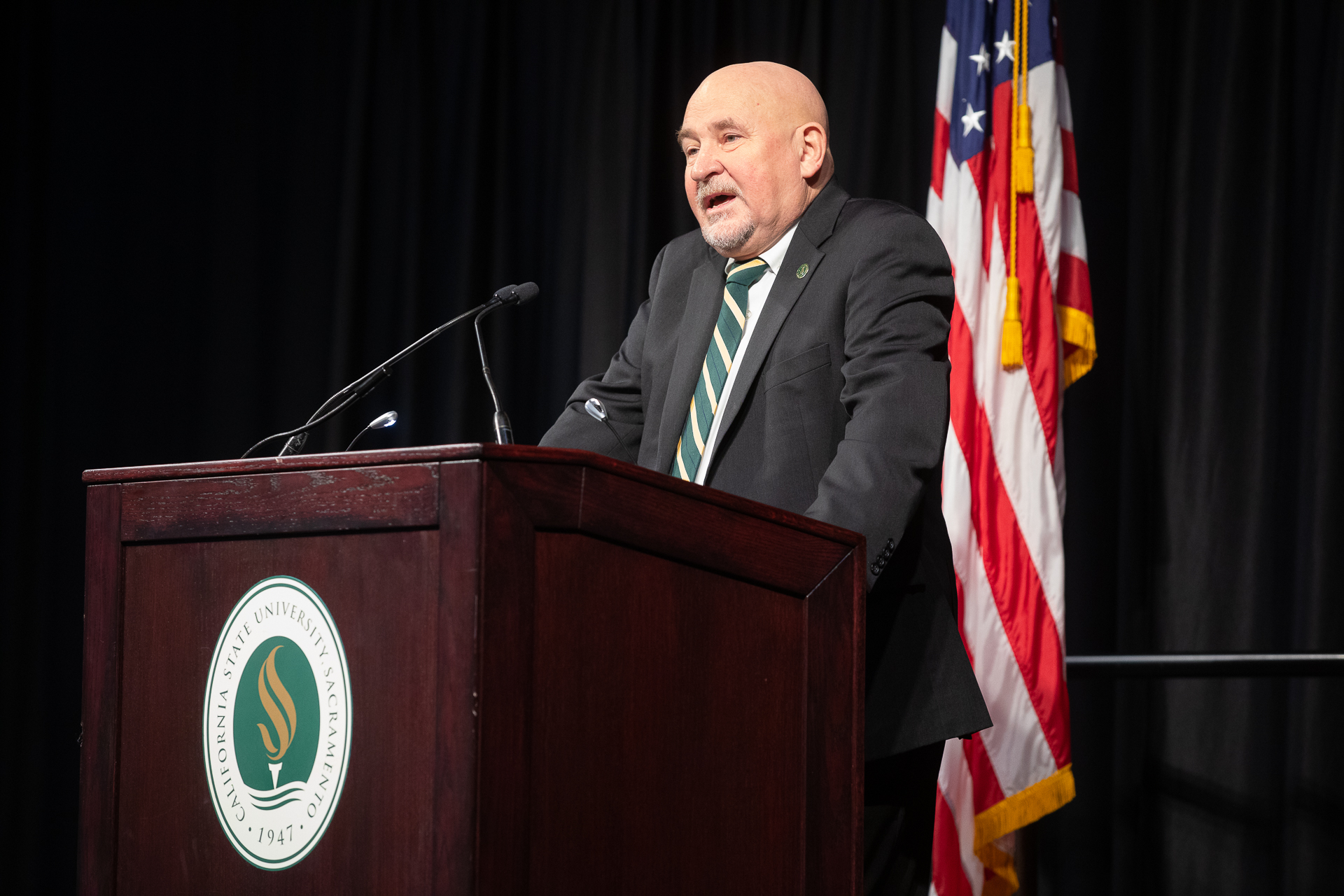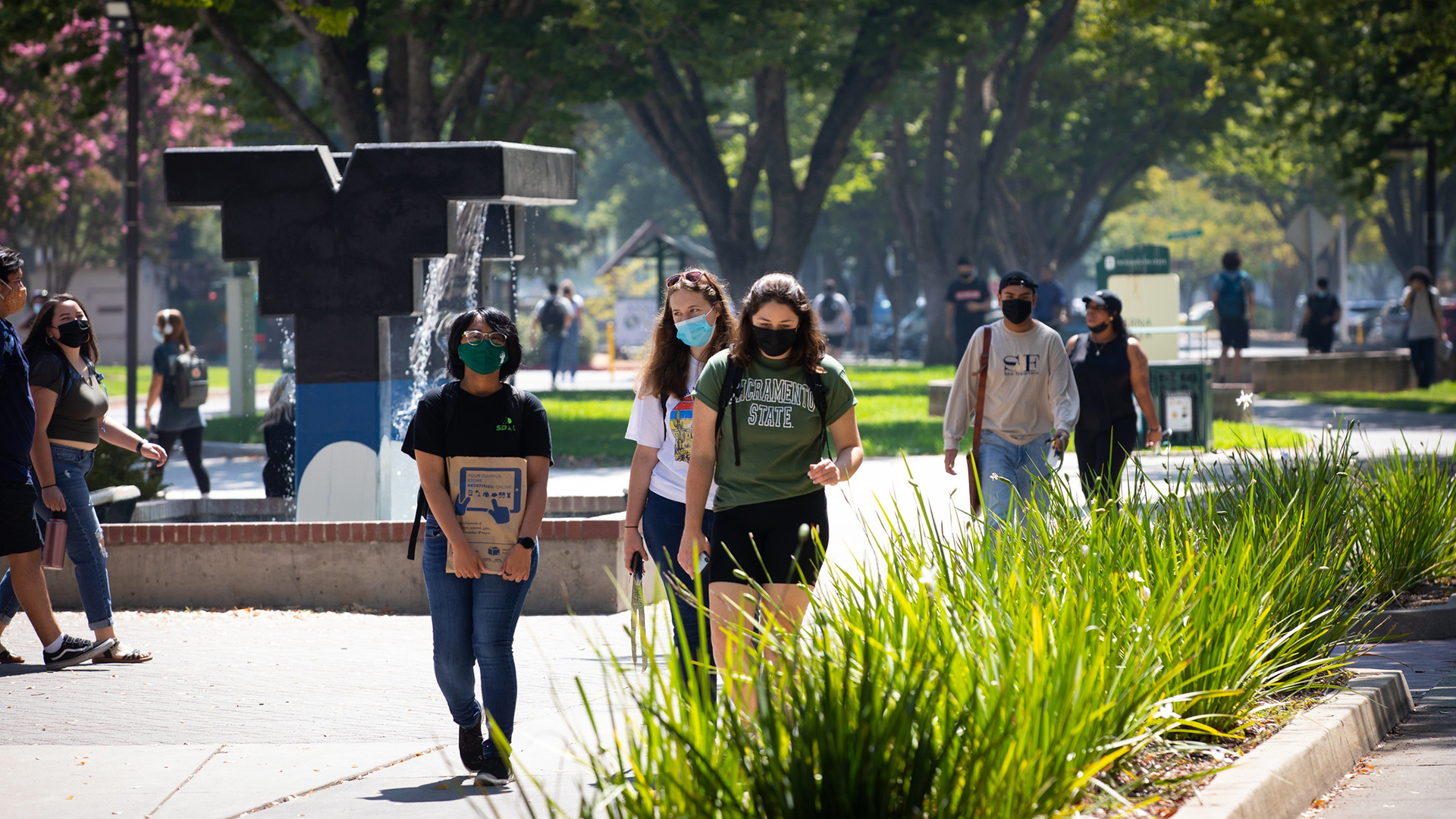Story Content
Convocation represents significant step toward realizing antiracism goals
February 08, 2022
Mia Settles-Tidwell wants Sacramento State students, faculty, staff, and administrators to have a personal stake in the upcoming Convocation on antiracism and inclusion.
“I would like every member of the campus community to ‘get in where they fit in,’” said Settles-Tidwell, the University’s vice president for Inclusive Excellence.
Changing a culture that has existed for 75 years will require that level of commitment, she said.
The Convocation, “A CALL to ACTION: Eradicate, Resolve, and Liberate,” will take place virtually 9 a.m.-3 p.m. Monday, Feb. 14.
President Robert S. Nelsen has encouraged all members of the campus community to attend, including alumni and members of the greater Sacramento community. Nelsen urged all instructors to cancel classes during the Convocation. Students who attend the event face no penalty for missing classes held that day.
The event, featuring key speakers and participatory breakout sessions, will focus on how to implement Sac State’s sweeping Antiracism and Inclusive Campus Plan, developed over several months with input from dozens of people throughout the University.
“We want people to see themselves in the campus plan, and ask ‘What is my role? What am I going to do to help make this happen?’” Settles-Tidwell said.
The extensive plan offers recommendations for addressing “mattering and affirmation,” curriculum development, faculty and staff retention, and transforming entrenched practices of racism and exclusion. Its scope encompasses the whole University
Significant initiatives include bolstering equity training, helping new hires connect with campus groups and community resources, providing racial bias training, and increasing promotion and visibility of University antiracism efforts.
Elements of the plan will roll out starting the day after the Convocation and continue a projected five years, Settles-Tidwell said.
“We want people to see themselves in the campus plan, and ask ‘What is my role? What am I going to do to help make this happen?’” - Mia Settles-Tidwell, vice president for Inclusive Excellence
The first year will focus on “believing that racism and exclusivity exist on campus, and that we can do something about it,” she said. To that end, the University plans to establish an Antiracism and Inclusive Implementation Team, a Staff and Faculty Retention Work Group, and a Police Safety Advisory Council. Settles-Tidwell vowed that the campus would track progress in those areas and report regularly.
The framework for future years will place emphasis on prioritizing recommendations, completing an audit of policies and practices within the University that may contribute to racial and other forms of bias, and “looking at what changes are necessary to transform the campus,” she said. It will challenge members of the campus community to look within themselves and engage in “internal criticism” of actions that “perpetuate and maintain the status quo.”
By the fifth year, “we hope that the campus will look very different than it does today,” she said.
In addition to discussion of the campus plan, the convocation will feature a keynote speech by scholar and activist Bettina Love from the University of Georgia, who has been instrumental in establishing “abolitionist teaching” in schools. Other offerings are panel discussions, and breakout sessions on various topics related to antiracism and inclusion.
Following the Convocation, members of the campus community will receive a “call for participation” to help create an environment at Sac State that cultivates belonging for all.
“This is about long-overdue actions we need to take as a campus, and everyone’s part in changing the culture,” said Settles-Tidwell.
She hopes that Convocation participants will leave “feeling hopeful, empowered and committed to do their part at every level of the organization,” she said.
“Whether you’re a student, a staff member, faculty, or an administrator, I hope people will walk away with tools that they can use to change inequitable policies and practices on our campus to create a truly antiracist culture.”
Media Resources
Faculty/Staff Resources
Looking for a Faculty Expert?
Contact University Communications
(916) 217-8366
communications@csus.edu


